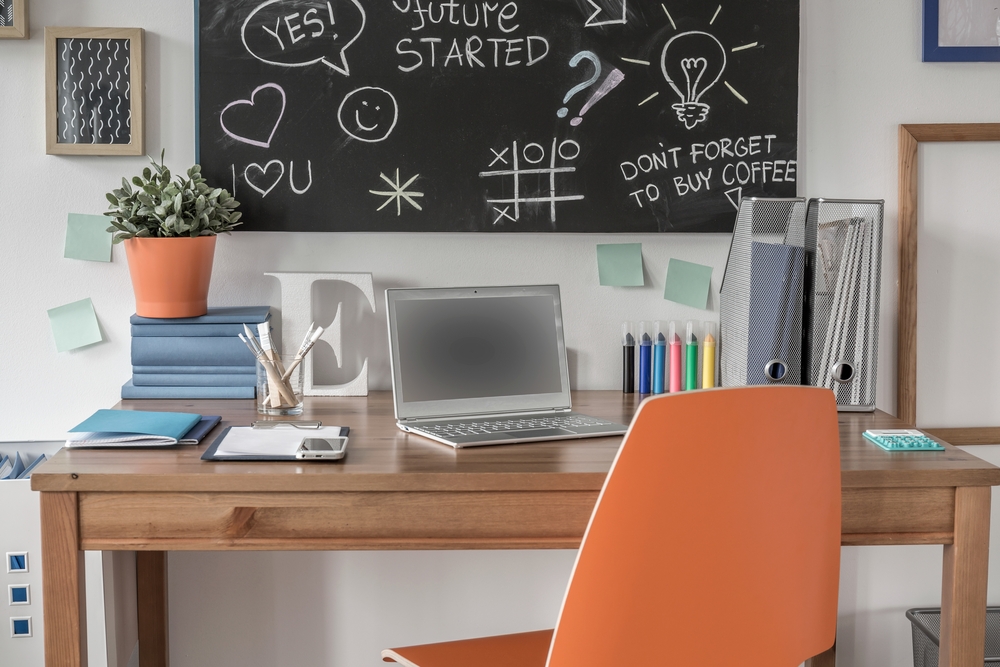The environment in which you study can have a huge impact on the amount of information that you retain and are able to reproduce during your exams. If you choose a comfortable, quiet, tidy and welcoming place to study, then you’re giving yourself a much better chance of getting the information to stick somewhere in your head.
Choosing one dedicated study space, and kitting it out to suit your studying needs, is a good step towards studying success. A comfortable spot, where you are used to studying and doing nothing else, is ideal. This place then stays in your mind as “your place of work”, where you study best, and this subconsciously aids your memory. A spare room in your house, or even a certain corner of a room that you can make your own until the exams are over, can work well.
Keep your study space tidy and clear of clutter. Tidy up before and after each study session, so that you know where everything is. Having a desk or table and a chair is the best arrangement for most people. Little things like the shape of your seat, the lighting and the temperature can all have an effect. Too hot and you will find yourself dozing off, too cold and you might catch hypothermia. Plenty of students get a lamp for their desk/table to make sure they can see what they are doing. Find a chair that is the right size and shape for you. It doesn’t necessarily have to make you sit up ramrod straight, but you don’t want to go 100% horizontal either.
It also helps if you can store all the materials you need – books, copies, pens, calculator etc. – in this place, so that you don’t have to constantly get up and grab something from the other room. If you have to go to the kitchen to get a pink highlighter, before you know it you’ve stopped for a chat with somebody, or accidentally turned on the telly, and then you’ve lost another half an hour.
Whether music is a help or a hindrance is another debatable topic. Some people can’t concentrate with the radio on; others say they need some background noise to get in the zone. An American researcher has found that baroque classical music makes the mind most receptive, but each to his own. It is fair to say, though, that loudly singing along, or constantly fiddling with your ipod, doesn’t help much at all. There are plenty of other distractions that are best avoided. The TV, background noise and especially noisy people, can have negative effects on your memory. Lots of students claim to study better in groups, but most people concentrate better on their own, with a bit of peace and quiet. It’s quite difficult to concentrate when there is a lot going on around you. Beware, however, of the opposite extreme. Some people find it harder to study if everything is taken away. Too much silence and complete calm can make it feel a bit eerie and be just as bad.
The mobile phone, and especially text messaging, has been a detrimental invention when it comes to studying. Just putting your phone on silent is no good; you’ll still notice the vibration alert, or you’ll check it every five minutes in the vain hope that somebody has texted to say the exams are cancelled. Throwing your mobile out the window is probably a bit excessive, but the advice “turn it off and leave it off” for the duration of each study period is the most sensible suggestion.
Different people concentrate best in different environments, so work out what is best for you and stick to it. It is fair to say, however, that for most people a quiet, clean space that is reasonably comfortable, and where you have everything you need close to hand, is the best study atmosphere.












Comments